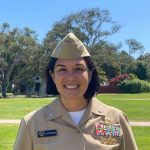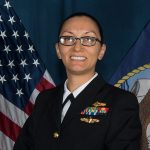Rapid Innovation CHALLENGES™
Rapid Innovation Challenges™ are digital, experiential learning programs that immerse students into career development by having them actively participate in the work, meet the people and see the impact of emerging career fields. These 3-4 day learning opportunities increase student engagement and performance and encourage them to pursue academic and career paths aligned with future workforce needs.
2022-2023 Challenges

Ignite Challenges with Florida Innovators Hall of Fame
Introducing challenges from the Florida Inventors Hall of Fame and the Florida High Tech Corridor that show how innovation starts right where you are.

Global Climate Design Challenge with Naval Postgraduate School and ServiceNow
Identify how automated services might have the ability to mitigate our impact on the environment. Students will study climate change and create their own Apps using the ServiceNow Platform. Pilot program is currently running in CA. Interested in bringing the program to your location? Contact us directly.

WellFed - Food Scarcity & Alternative Gardening Challenge
Create an alternative garden using sustainable practices as a way of fighting food scarcity and developing food education in your community.

Catalyze Challenge: Automated Systems Air, Land, and Sea
Identify a public safety issue and identify an automated system that could be developed so that humans were no longer directly responsible for that job.

Valor STEAM Challenges
Learn about how AVTT honors our first responders through traveling memorial events, and how Valor Chapter’s Health is bringing them to Tampa. Then create your own memorial piece of art.

Catalyze Challenge: Video Production Challenge with Vu Studios
Create a 30-60 second video and describe the behind-the-scenes process you used to create it. Entries will be judged for innovation in video production.

Catalyze Challenge: Mobile Health Bus
Learn about Data Science through the eyes of health care and how where you live can affect how healthy you live. Use that knowledge to help create a mobile health solution to change the data for underserved communities.
2021-2022 Challenges


Challenge: Design a facility for military families.
A lot of research goes into planning future military facilities. Our challenge champions have to focus not only on what needs to be built, but how it will be impacted by climate change in the future.

Challenge: Design and test a 3D printed boat for a specific purpose.
We have probably all seen a wooden, metal, or plastic boat at one time in our lives, but you might not have seen a 3D printed one. The Navy is currently working to make them a reality.

Challenge: Design a solution for boat cleaning that uses an automated system.
The Navy is very concerned about clean waters and being energy efficient. One of the biggest issues for fuel efficiency for the Navy is marine biofouling on the hulls of ships.

Challenge: Create two network access control lists (ACLs) that correctly implement a national security policy.
In our modern world, cyber security is an issue we all face every day. Keeping networks secure and running effectively is of major importance, especially to the Navy.

Challenge: Develop a way to monitor the physical changes that occur at the beach using machine learning.
We depend on our coastlines for living space, our economy, and even our safety. Dr. Orescanin and other scientists are developing computer models that help to describe why, when and how coastal change happens.

Challenge: Design an experiment that will test how well inexpensive cameras can take underwater images that can be used to train MCM machines to reliably and autonomously identify mines.
Naval mines are used across the world to deny access to harbors and waterways, or to protect friendly vessels, and they pose tremendous challenges for US Navy surface ships and submarines. Engineers like Dr. Sastre-Cordova are working with the Navy to develop autonomous vehicles that can find and inactivate mines safely and efficiently.


RESOURCES



